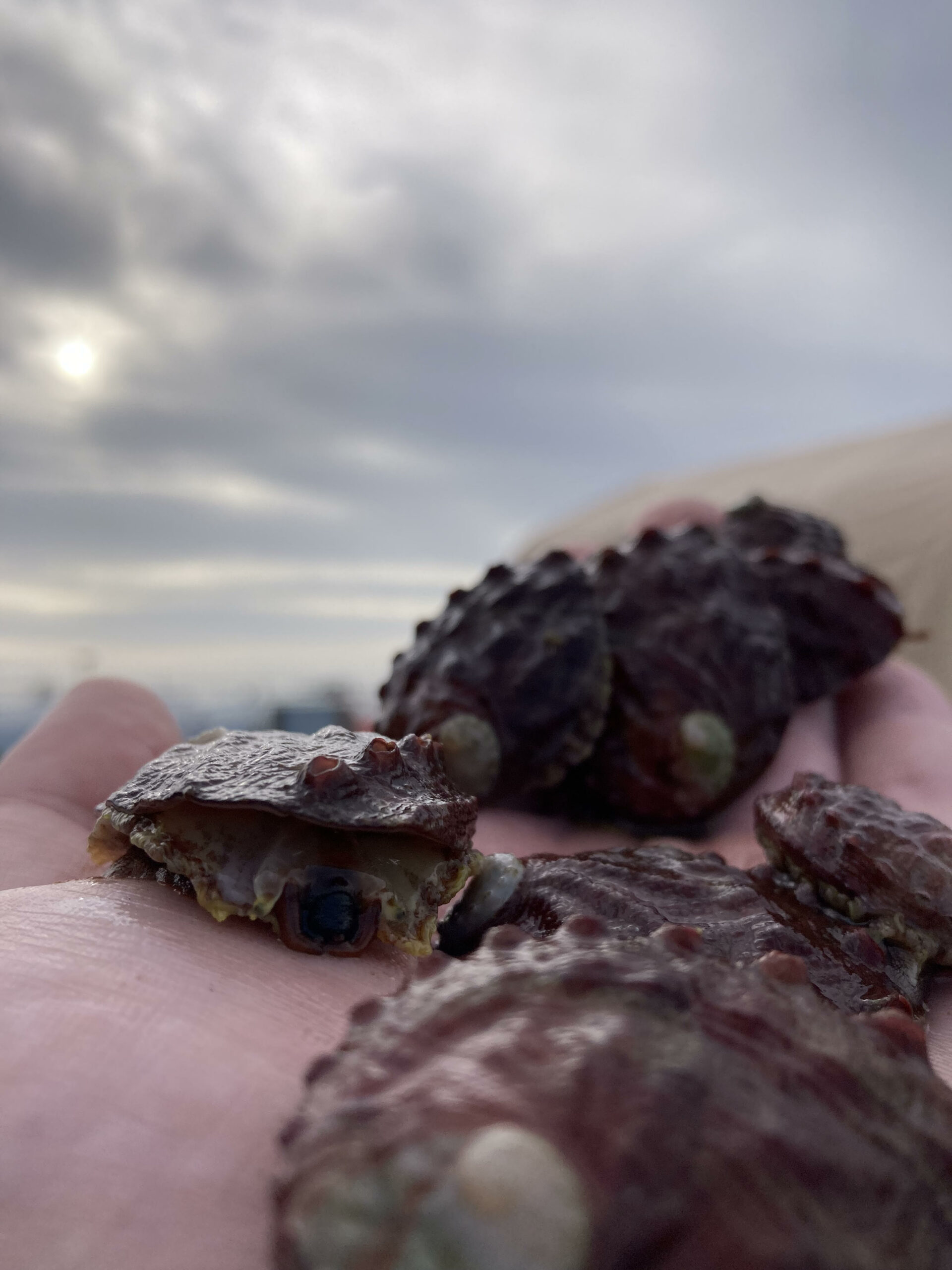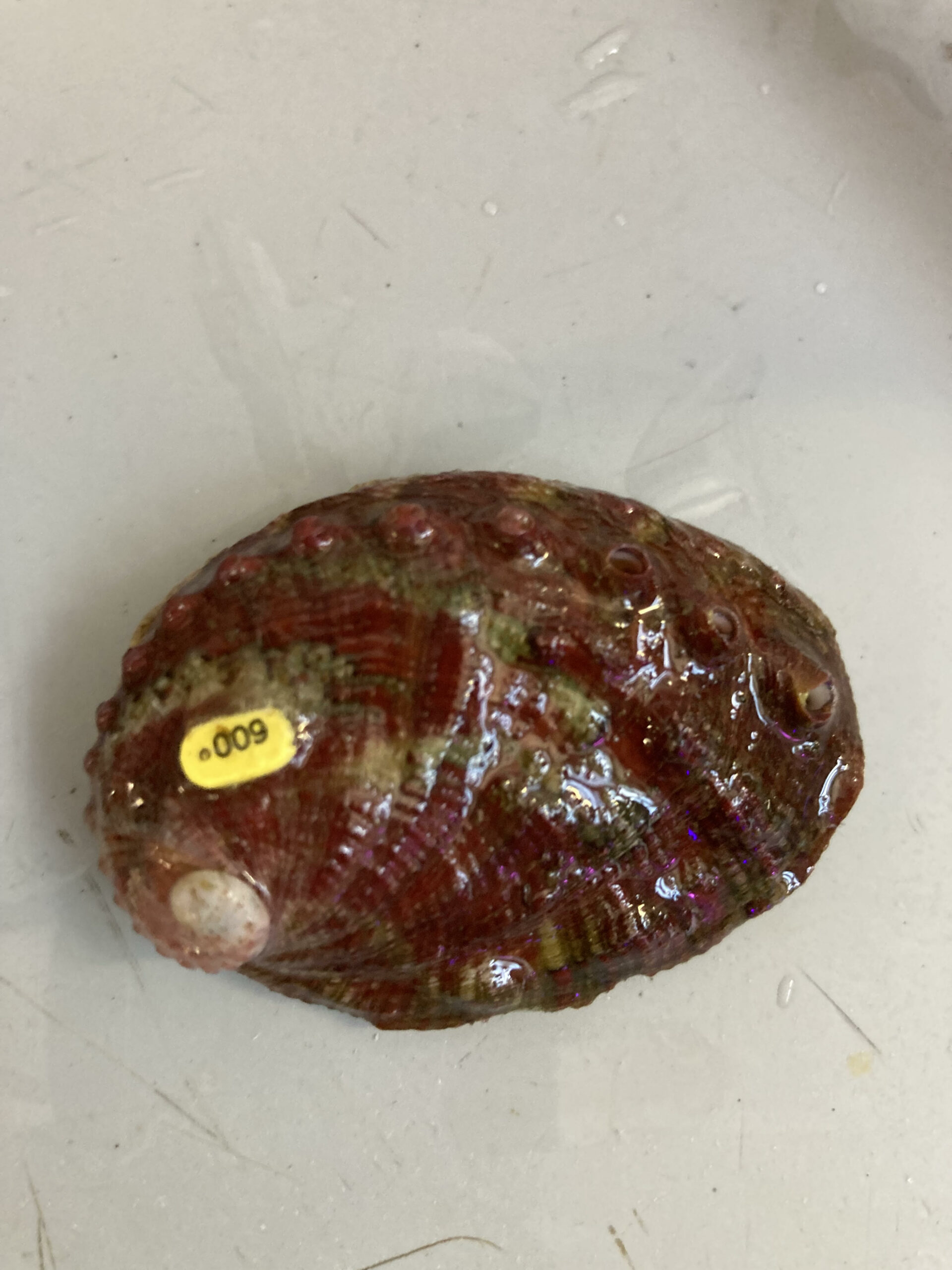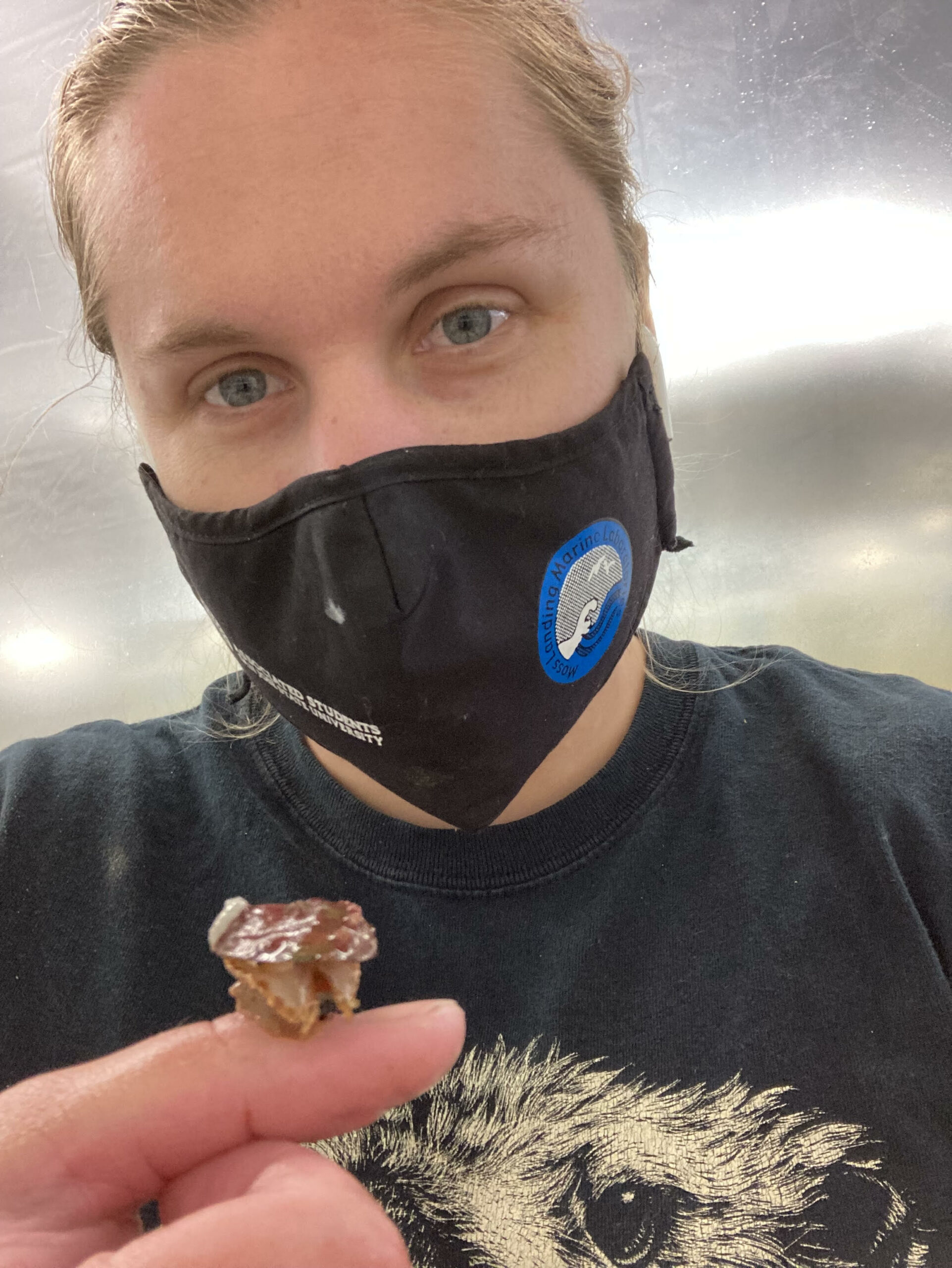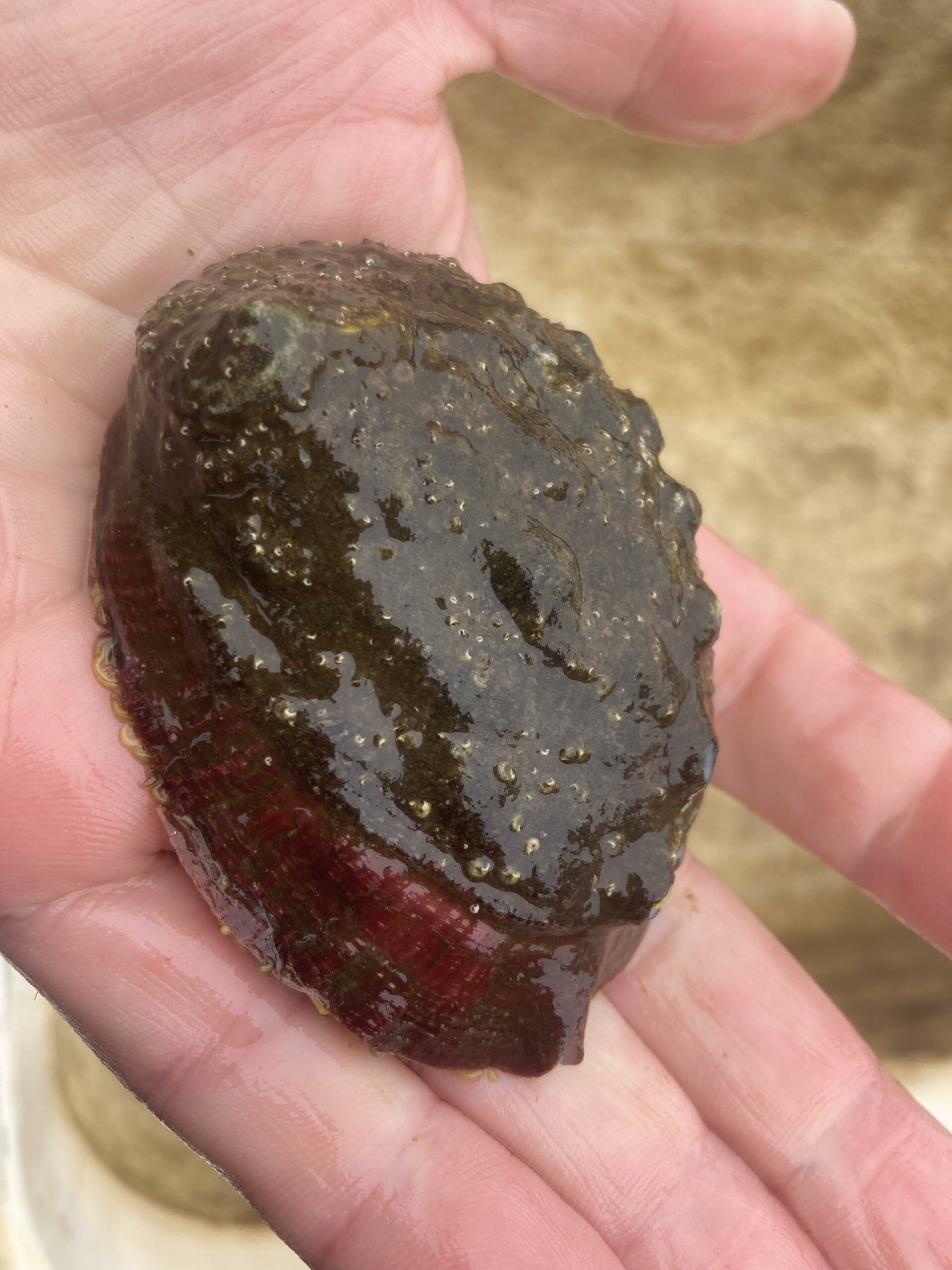"White Abalone (Haliotis sorenseni) Restoration Aquaculture: An Assessment of Formulated Diets and Probiotics"
A Thesis Defense by Kayla Roy
Zoom | Live-Stream | July 17th, 2022 at 12:00 pm PDT
Abstract
White abalone (Haliotis sorenseni) are an endangered species found along the California coast. They are at historically low densities, nearing extinction. Aquaculture facilities throughout California are currently involved in the captive breeding of the species and grow out of juveniles for outplanting to wild habitat. White abalone have historically suffered from an infectious bacterial disease known as withering syndrome or Ca.Xc. This disease has been treated with an antibiotic, but antibiotic treatments can lower immune functions and create antibiotic resistance genes. A probiotic treatment could be used to replace this antibiotic and increase the overall health and growth rates in white abalone. To study the use of probiotics, Bacillus licheniformis was used on macroalgae in abalone exposed to and unexposed to Ca.Xc There was no Ca.Xc detected in any of the white abalone at the end of the study indicating that white abalone may now be able to combat Ca.Xc with abacteriophage (pCXc). Shell loss during this first probiotic experiment hindered data collection on feeding and growth rates. In the first probiotic study 42% of the white abalone and 53% of the red abalone lost their shells. Two subsequent studies were conducted to understand the cause of the shell loss. These studies were inconclusive, but one of these experiments showed that low tank stocking density (588 abalone/m2) can increase feeding and growth rates compared to high tank densities (1,176 abalone/m2).
White abalone restoration activity aims to enhance the species recovery by developing self-sustaining populations. These efforts are costly because of the species’ slow growth, high early mortality rate, and reliance on seasonal macroalgae feed. These limiting factors warrant an assessment of alternative diets and probiotic treatments for the species to shorten the culture time and lower costs before outplanting. Diet administered probiotics have previously shown improved growth rates, feed digestibility, and survivorship in abalone species. Formulated feeds are known to provide adequate nutrition and reduce costs for several cultured species. The second probiotic study investigated the effects of B. licheniformis on a commercially formulated abalone feed, ABKelp®, on white abalone. Three diet treatments were assessed: formulated feed treatment, formulated + probiotic treatment, and standard fresh macroalgae diet (Devaleraea mollis and Macrocystis pyrifera). The standard fresh macroalgae treatment resulted in the highest growth rates and feed intake, while the formulated + probiotic treatment had the lowest feeding and growth rates. This could be due to a reduced palatability caused by the presence of the probiotic.
Despite comparatively inferior growth metrics, the formulated treatment still resulted in adequate growth andsurvivorship in white abalone. The use of a formulated diet is feasible for white abalone restoration aquaculture when considering additional costs associated with fresh macroalgae feeding including permits, diving, and boat operations for M. pyrifera collection and culture facilities devoted to macroalgae culture and storage. The growth rates, feeding rates, and proximate analysis suggest that formulated feed is a viable alternative diet for conservation aquaculture facilities with limited access to fresh macroalgae.


Bio
Kayla graduated from California State University Monterey Bay (CSUMB) in May of 2019 with a B.S. in Marine Science. In her undergraduate time there she served as president of the Marine Science Club and was a TA the Beginner and Advanced/Rescue SCUBA classes. She volunteered a Science Mentor for Watsonville Area Teens Conserving Habitats (WATCH) program through the Monterey Bay Aquarium.
Kayla accepted a position in Dr. Luke Gardner’s lab at MLML in the fall of 2019. Her thesis investigated multiple methods of improving white abalone aquaculture restoration work. In her thesis she assessed the use of a probiotic treatment for withering syndrome now known as Ca.Xc. She assessed a formulated diet to understand its impact on white abalone growth rates, feeding rates, and survivorship compared to their natural and seasonally limited seaweed diet. She presented her thesis work at the Aquaculture America 2023 conference in New Orleans, Louisiana. During her thesis work she mentored an undergraduate student though the CSUMB Undergraduate Research Opportunities Center (UROC) program. Kayla worked as a water quality monitoring technician and worked on the White Abalone Project during graduate school. She reared the white abalone at MLML for outplanting and helped with abalone spawning work. She served as the GA for the Invertebrate Zoology I course at MLML. During her time at MLML she participated in the 2023 research competition AlgaePrize at the National Renewable Energy Lab (NREL) in Golden, Colorado. After graduating Kayla is looking forward to continuing with aquaculture work and research.




